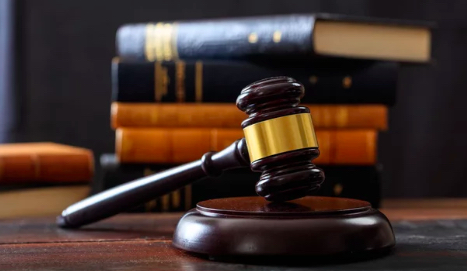 Criminal law is a complex and fascinating area of law. It deals with crimes and the consequences of those crimes. Criminal law is important because it helps to protect society from harm. Contact the lawyers at JDB Law, PLLC to learn more. A crime is an act that is prohibited by law. Crimes can be classified into two main categories: felonies and misdemeanors. Felonies are more serious crimes like murder, robbery, and rape. Misdemeanors are less serious crimes, such as shoplifting and traffic violations.
Criminal law is a complex and fascinating area of law. It deals with crimes and the consequences of those crimes. Criminal law is important because it helps to protect society from harm. Contact the lawyers at JDB Law, PLLC to learn more. A crime is an act that is prohibited by law. Crimes can be classified into two main categories: felonies and misdemeanors. Felonies are more serious crimes like murder, robbery, and rape. Misdemeanors are less serious crimes, such as shoplifting and traffic violations.
For an act to be considered a crime, it must meet certain elements. These elements vary depending on the specific crime, but they generally include the following:
Actus reus: This is the Latin term for “guilty act.” It refers to the physical or mental conduct that is required for a crime to be committed. For example, the actus reus for murder is the intentional killing of another human being.
Mens rea: This is the Latin term for “guilty mind.” It refers to the mental state that is required for a crime to be committed. For example, the mens rea for murder is the intent to kill another human being.
There are a number of defenses that a criminal defendant can raise. Some of the most common defenses include:
Self-defense: This defense is available when a defendant uses force to protect themselves from imminent harm.
Insanity: This defense is available when a defendant is unable to understand the nature of their actions or to control their conduct due to a mental disorder.
Duress: This defense is available when a defendant is forced to commit a crime due to a threat of imminent harm.
If a person is convicted of a crime, they may face a number of consequences, including:
Imprisonment: This is the most common punishment for crimes.
Probation: This is a type of sentence in which the defendant is allowed to remain in the community under the supervision of a probation officer.
Fines: This is a type of punishment in which the defendant is required to pay a sum of money to the court.
Criminal law is enforced by a variety of law enforcement agencies, including the police, the sheriff’s department, and the FBI. When a crime is committed, the law enforcement agency responsible for investigating the crime will gather evidence and identify suspects. If a suspect is identified, they may be arrested and charged with a crime.
If a suspect is charged with a crime, they will be arraigned in court. At the arraignment, the defendant will be informed of the charges against them and will have the opportunity to enter a plea of guilty or not guilty. If the defendant pleads not guilty, the case will proceed to trial.
At trial, the prosecution and the defense will present their evidence to the jury. The jury will then decide whether the defendant is guilty or not guilty. If the defendant is found guilty, they will be sentenced by the judge.
Criminal law is a complex and important area of law. It helps to protect society from harm and ensures that those who commit crimes are held accountable for their actions.
Here are some additional details about criminal law, presented in a casual tone:
Criminal law is not always black and white. There are often gray areas where it can be difficult to determine whether a crime has been committed. For example, self-defense is a valid defense to many crimes, but it can be difficult to determine when someone has acted in self-defense and when they have used excessive force.
Criminal law is constantly evolving. The law is constantly being updated to reflect changes in society and to keep up with new technologies. For example, the rise of cybercrime has led to the development of new laws to address these types of crimes.
Criminal law is important for everyone. Everyone should have a basic understanding of criminal law, even if they are not lawyers. This is because criminal law can affect anyone, regardless of their background or social status. For example, everyone should know what their rights are if they are arrested.
The criminal justice system can be slow and expensive. It can take years for a criminal case to go to trial, and the costs of defending yourself against criminal charges can be high. This is why it is important to have a good criminal defense lawyer.
The criminal justice system can be unfair. People of color and people from low-income communities are more likely to be arrested and charged with crimes, and they are also more likely to be convicted and sentenced to harsher punishments. This is a problem that the criminal justice system is working to address, but there is still a lot of work to be done.
Criminal law is important for protecting individual rights. The criminal justice system is designed to protect the rights of both the accused and the victims of crime. For example, the accused has the right to a fair trial, the right to remain silent, and the right to an attorney.
Drug crimes: Drug crimes are one of the most common types of crimes in the United States. These crimes include the possession, sale, and distribution of illegal drugs.
Theft crimes: Theft crimes are another common type of crime in the United States. These crimes include burglary, robbery, and larceny.
Violent crimes: Violent crimes are crimes that involve physical harm to another person. These crimes include murder, assault, and rape.
Property crimes: Property crimes are crimes that involve damage to or theft of property. These crimes include arson, vandalism, and trespassing.
White-collar crimes: White-collar crimes are non-violent crimes that are committed by individuals in positions of trust or authority. These crimes include fraud, embezzlement, and insider trading.
Criminal law is not the same as civil law. Civil law deals with disputes between individuals, such as lawsuits over contracts or personal injuries. Criminal law, on the other hand, deals with crimes that are committed against society as a whole.
Criminal law is based on the principle of due process. This means that everyone accused of a crime has the right to a fair trial. The accused has the right to be informed of the charges against them, to confront witnesses, and to present evidence on their own behalf. The accused also has the right to an attorney, and the prosecution must prove beyond a reasonable doubt that the accused is guilty.
Criminal law is designed to serve a number of purposes. These purposes include:
Deterrence: Criminal law is designed to deter people from committing crimes by threatening them with punishment.
Incapacitation: Criminal law is designed to incapacitate criminals by preventing them from committing future crimes. This can be done through imprisonment, probation, or other forms of supervision.
Rehabilitation: Criminal law is also designed to rehabilitate criminals and help them to become productive members of society. This can be done through educational programs, vocational training, and other programs that help criminals to address the underlying causes of their criminal behavior.
Retribution: Criminal law is also designed to provide retribution to the victims of crime. This can be done through punishment, such as imprisonment or fines, or through other forms of restitution.
